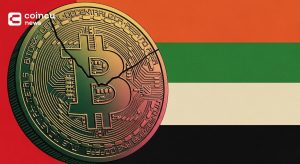
- Cryptocurrencies are not recognized as a legal means of payment in Vietnam.
- Regulations on cryptocurrencies remain unclear and are still being developed.
- The government has concerns about security issues like money laundering and terrorist financing related to cryptocurrencies.
Cryptocurrencies have become a significant part of the global digital economy, but in Vietnam, managing and regulating them remains a considerable challenge. Despite their strong development potential, the Vietnamese government has not yet established specific regulations to govern this sector.
According to gambling expert Tùng Lâm, although online gambling is not legalized for Vietnamese citizens, online casinos are still accessible in Vietnam through international online platforms. You can khám phá poker online và casino trực tuyến uy tín tại Topcasinoviet.com, a platform that exemplifies the growing popularity of online casinos in the region. Offshore online casinos often accept the use of cryptocurrencies as a payment method and is often the reason they appeal to so many players since blockchain technology also allows for more private gameplay.
To effectively address these challenges, the Vietnamese government is considering the implementation of advanced technology and systems for tracking cryptocurrency transactions. By adopting blockchain analysis tools, authorities aim to gain more insight into the flow of digital currencies and identify any suspicious activities more efficiently. This could potentially lead to a more structured regulatory environment where transactions are transparent and traceable, reducing the likelihood of their use in illicit activities.
Furthermore, the government is exploring educational initiatives to increase public awareness about the risks and benefits of cryptocurrencies. By informing citizens about how cryptocurrencies work and the legal implications of their use, the authorities hope to foster a safer and more informed environment for digital currency transactions, though hopefully not through a regulatory regime that isn’t so restrictive it kills growth. This initiative could also extend to collaborations with educational institutions and technology experts to develop curricula that cover essential aspects of digital currencies.
In addition, discussions are underway to create a specialized regulatory body within Vietnam’s financial sector to oversee cryptocurrency markets. This body would be responsible for setting standards, issuing guidelines, and ensuring compliance with international financial regulations. The establishment of such an authority could help bridge the current gap in understanding and managing cryptocurrencies, making Vietnam more attractive to both local and international crypto investors, and laying a foundation for a stable and secure digital financial market.
The boom of real money online casinos is part of a larger narrative about digital engagement from gaming to management. As legal frameworks develop, these platforms provide a controlled environment where fans can engage in gambling responsibly.
By leveraging the popularity and accessibility of digital platforms, communities can initiate projects that have both local impact and global reach. This could potentially lead to new funding models where community-driven projects are supported through innovative means like cryptocurrency transactions or NFT (Non-Fungible Token) sales, similar to what has been seen with the support for Yamakoshi.
Furthermore, as digital platforms become more embedded in everyday life, they offer an array of opportunities for grassroots movements to gain momentum. Online communities can harness these digital tools to mobilize resources, share knowledge, and connect with like-minded individuals across borders. This can empower smaller communities to make a significant impact on larger scales, challenging traditional dynamics of economic development and participation.
| DISCLAIMER: The information on this website is provided as general market commentary and does not constitute investment advice. We encourage you to do your own research before investing. |























